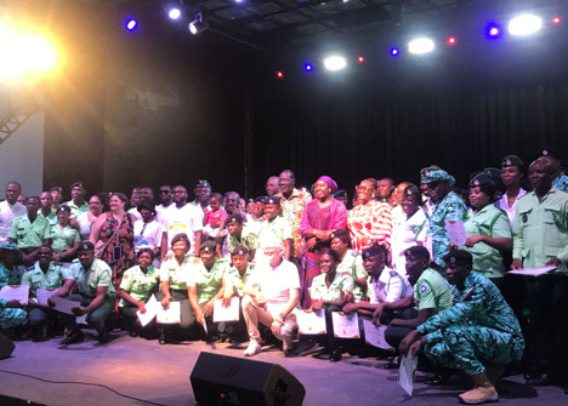EMTs, facilitators and dignitaries in a group photograph
A total of 140 Emergency Medical Technicians (EMTS) of the National Ambulance Service (NAS) have successfully completed a certificate course in Medical French Language Lessons at Alliance Française Accra.
The training programme was made possible through the collaboration between NAS, the French Embassy in Ghana and Alliance Française Accra as a collective commitment to building a more responsive, capable, and internationally aligned emergency medical service.
NAS CEO, Prof. Ahmed Nuhu Zakaria, in a speech read on his behalf, highlighted the frustrations personnel of the service have to encounter when administering emergency services to foreign nationals from the francophone countries.
He further indicated that providing medical cover during high-profile international programmes and events, including those organised by the African Union (AU), ECOWAS, the World Bank, International Monetary Fund (IMF), CAF, and major sporting events like the African Athletics Championships become a challenge due to language barriers.
“These engagements often involve delegates, participants, and dignitaries from Francophone countries, making effective communication not just a courtesy—but a necessity,” he emphasised.
Prof. Zakaria said the French language training is a strategic investment in enhancing EMTs communication during emergency response, breaking down language barriers, and ensuring improved patient care in multicultural and multilingual scenarios, adding that when every second counts, the ability to understand and be understood can mean the difference between life and death.
The Head of Cooperation, French Embassy in Ghana, Mr. Julien Lecas said they created this programme for NAS personnel because it’s crucial to foster dynamism and organisation in their work.
He said the French Embassy and National Ambulance Service were heavily involved in this project, noting that they have equipped personnel with essential French language skills, particularly in emergency situations.
“We have covered the fundamentals of French, including speaking, understanding and using the language effectively, and the learning of key phrases and sentences to communicate with patients,” he added.
BY Prince Fiifi Yorke


